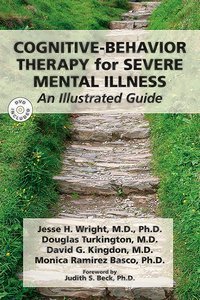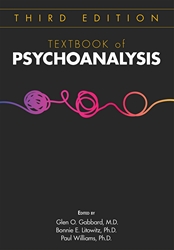Learning Cognitive-Behavior Therapy, Second Edition
An Illustrated Guide
View Pricing
Description
Building on its successful read-see-do approach, this second edition of Learning Cognitive-Behavioral Therapy: An Illustrated Guide seamlessly combines 23 all-new videos with informative text and figures, charts, worksheets, checklists, and tables to help readers not only learn the essential skills of CBT but achieve competence in this important evidence-based treatment method.
Opening with an overview of core cognitive-behavior therapy (CBT) theories and techniques, leading CBT practitioners then describe and demonstrate how to build effective therapeutic relationships with CBT, conceptualize a case with the CBT model, structure sessions, and resolve common problems encountered in CBT.
This updated, second edition of the best-selling and highly popular Learning Cognitive-Behavioral Therapy also features:
- Ways to employ CBT to reduce suicide risk
- Guidance on integrating therapies related to CBT—including dialectical behavior therapy, mindfulness-based cognitive therapy, and well-being therapy—in the context of personality disorders and chronic or recurrent depression
- An appendix of curated resources by the expert authors—recommended readings, computer programs, Web sites, videos, and organizations—to give readers access to the best resources in building competence in CBT practice
The all-new videos feature clinicians demonstrating methods in real-world settings and include new topics such as safety planning and uncovering and changing maladaptive schemas. Proven as one of the best teaching tools for building competence in CBT, this new edition will enrich readers' understanding and practice of CBT.
Contents
- Preface
- Video Guide
- Acknowledgments
- Chapter 1. Basic Principles of Cognitive-Behavior Therapy
- Chapter 2. The Therapeutic Relationship: Collaborative Empiricism in Action
- Chapter 3. Assessment and Formulation
- Chapter 4. Structuring and Educating
- Chapter 5. Working With Automatic Thoughts
- Chapter 6. Behavioral Methods I: Improving Mood, Increasing Energy, Completing Tasks, and Solving Problems
- Chapter 7. Behavioral Methods II: Reducing Anxiety and Breaking Patterns of Avoidance
- Chapter 8. Modifying Schemas
- Chapter 9. Cognitive-Behavior Therapy to Reduce Suicide Risk
- Chapter 10. Treating Chronic, Severe, or Complex Disorders
- Chapter 11. Building Competence in Cognitive-Behavior Therapy
- Appendix 1: Worksheets and Checklists
- Appendix 2: Cognitive-Behavior Therapy Resources
- Index
Contributors
- Catherine Fox
Carol Wahl
About the Authors
Jesse H. Wright, M.D., Ph.D., is Professor and Kolb Endowed Chair of Outpatient Psychiatry, Director University of Louisville Depression Center, University of Louisville School of Medicine in Louisville, Kentucky.
Gregory K. Brown, Ph.D., is Research Associate Professor of Clinical Psychology in Psychiatry at the University of Pennsylvania School of Medicine in Philadelphia, Pennsylvania.
Michael E. Thase, M.D., is Professor and Chief of Adult Academic Psychiatry at the University of Pittsburgh Medical Center in Pittsburgh, Pennsylvania.
Monica R. Basco, Ph.D., is Associate Director Science Policy, Planning, and Analysis at the National Institutes of Health, Office of Research on Women's Health, Bethesda, Maryland.
Companion Products
Related Products
Carousel Control - items will scroll by tabbing through them, otherwise arrows can be used to scroll one item at a time










